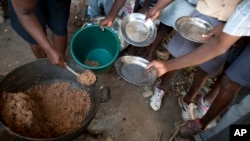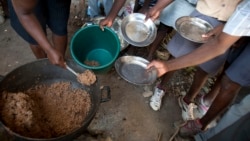In April, the United States Embassy to Haiti announced more funding for the ongoing needs of Haitian households suffering from the effects of the El Niño-induced drought, bringing U.S. contributions to $21.9 million USD over the last six months.
The U.S. Agency for International Development, or USAID, began working to mitigate the risks of drought-induced hunger and malnutrition in October 2015. To date the U.S Government has provided $21.9 million to address emergency needs for food, nutrition, and water in all the drought-affected departments of the country: North-East, l’Artibonite, Centre, West, and South-East.
This includes: $7.4 million to the World Food Programme for cash and food transfers to 100,000 people, and $1.2 million to UNICEF to treat 37,800 children who could be diagnosed with Severe Acute Malnutrition.
Emergency food aid funding of $11.8 million, also included, to partners CARE, Action Contre la Faim, and World Vision, which plans to support at over 135,000 people, in addition to the 102,000 already served by USAID and Haitian government’s Kore Lavi social safety net program, through which participants receive cash for assets, and food vouchers to purchase locally sourced, nutritious food.
USAID provides $1.3 million for increasing clean water supply and sanitation in the South-East department, one of the hardest hit by drought, migration from the Dominican Republic, and recent cholera outbreaks. This sum includes: $900,000 to Solidarités International, $250,000 to UNICEF, and $160,000 to International Organization for Migration.
Finally, the United States contributed $200,000 to the UN Office for the Coordination of Humanitarian Affairs (UNOCHA) for drought, migration, and cholera response coordination across and among all organizations and the government.
U.S. Ambassador to Haiti Peter Mulrean reiterated that: “The U.S. stands steadfast with Haitian families to provide for their emergency food, nutrition, and water needs. We also continue to work to strengthen Haiti’s future capacity to prepare for and withstand shocks, including by boosting agricultural production and closing food gaps for those most vulnerable to weather, political and price shocks."

















